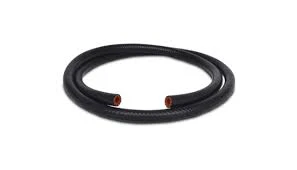Essential Supplies for Brake Line Installation and Maintenance
ធ្នូ . 15, 2024 05:11 Back to list
Essential Supplies for Brake Line Installation and Maintenance
Understanding Brake Line Supplies Essential Components for Vehicle Safety
When it comes to vehicle safety and performance, one of the most critical aspects to consider is the brake system. Among the various components that make up this system, brake lines play a crucial role. Brake lines are responsible for transferring hydraulic fluid from the master cylinder to the brake calipers or wheel cylinders, converting the force applied on the brake pedal into the braking power required to slow down or stop the vehicle. Therefore, understanding brake line supplies is essential for both vehicle maintenance and repair.
Types of Brake Lines
Brake lines can be categorized into two main types steel brake lines and rubber brake hoses. Steel brake lines are constructed from high-strength steel tubing and are typically used in the hard lines of the brake system. These lines provide a rigid and durable structure that can withstand high pressure. Their corrosion resistance is enhanced through plating or coating, which is vital for ensuring longevity in various weather conditions.
On the other hand, rubber brake hoses are flexible and are found in areas where movement is required, such as between the chassis and the suspension components. Rubber hoses can accommodate the movement of the suspension while maintaining the integrity of the brake fluid transfer. However, it's essential to replace them periodically, as they can degrade over time due to factors like heat, friction, and exposure to road conditions.
Choosing the Right Brake Line Supplies
When selecting brake line supplies, there are several factors to consider to ensure optimal performance and safety
. The first step is to determine the type of braking system in your vehicle – whether it utilizes standard fluid systems or advanced systems with features like anti-lock braking (ABS). Ensure that the supplies you choose are compatible with your vehicle’s specific requirements.Next, consider the material of the brake lines. For vehicles used in rigorous conditions, such as off-roading or for heavy hauling, stainless steel brake lines are a popular choice due to their superior strength and rust resistance. For regular daily drivers, OEM (original equipment manufacturer) rubber hoses and metal lines are often sufficient.
Key Components of Brake Line Supplies
When looking for brake line supplies, there are several essential components to consider
brake line supplies

1. Brake Line Tubing Available in various diameters, typically in 3/16-inch for most vehicles. The tubing must be easy to bend and form to fit your vehicle's brake system.
2. Fittings Various connectors are necessary for attaching the brake lines to the brake calipers, master cylinder, and other components. Common fittings include flare fittings, which create a tight seal to prevent leakage.
3. Brake Fluid It is essential to use the correct type of brake fluid, as specified by the manufacturer, to ensure proper operation and safety. The two most common types are DOT 3 and DOT 4 fluids, which differ in their boiling points.
4. Brake Line Clamps These are crucial for securing brake lines in place to prevent movement and potential wear. Proper clamping can also help reduce vibrations, prolonging the life of the quick-connecting supplies.
5. Brake Line Tools A range of tools can facilitate the installation and maintenance of brake lines. These include tubing benders, flare tools, and line wrenches, which are specifically designed to prevent damage to fittings while loosening or tightening them.
Maintenance and Replacement
Brake lines should be inspected regularly for signs of wear, corrosion, or leaks. It is essential to check for any signs of degradation in rubber hoses, such as cracking or blistering. If you notice a decrease in braking responsiveness or see brake fluid leaks, it may be time to replace your brake line supplies.
Routine maintenance not only ensures your vehicle's braking system functions effectively but also helps ensure your safety on the road. If you're not comfortable with brake line service, it's advisable to consult with a professional mechanic who can guide you in selecting the right supplies and performing installations correctly.
Conclusion
In summary, understanding brake line supplies is crucial for anyone looking to maintain their vehicle’s safety and performance. By choosing the right materials, components, and conducting regular maintenance, you can ensure that your brake system operates optimally — keeping you safe on the road. Whether you are a seasoned mechanic or a vehicle owner looking to perform your own maintenance, knowledge of brake lines is essential for ensuring reliable and safe driving experiences.
